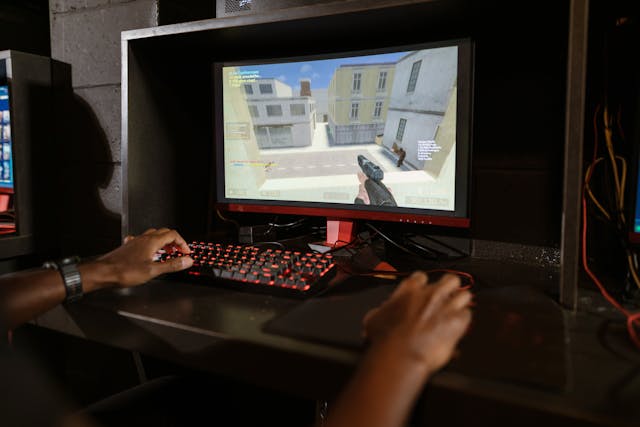We haven’t heard a lot about the progress of the SAG-AFRTA video game strike after the initial picketing, despite the fact that the strike is still ongoing. Initially the strike took place back in late October of 2016, and has carried through up until the present date. We heard about the picketing outside of offices like Electronic Arts and WB Games, but it didn’t seem like a lot of progress was being made. However, behind the scenes new contracts were being written up, new deals were being made, and game companies were quietly adding signatures to SAG’s agreements.
A representative for SAG-AFTRA notified One Angry Gamer that since starting the strike in late October of 2016, 22 games and 15 companies have signed the new agreement. According to the rep, those signatures have doubled within the “first three months of 2017”, which would mean up to 30 companies could be signed to the new agreement.
Chief contracts officer for SAG-AFTRA, Ray Rodriguez, commented about the increased signatures to the new agreements, explaining in a statement to One Angry Gamer…
“Over the past two months, we’ve doubled the number of games and almost doubled the number of companies signed to our new video game agreements,”
“This success is a testament to our union’s willingness to work closely with employers who want the best talent in the business to work on their games. As projects ranging from AAA titles to low-budget experimental games continue to go union, our momentum will only build.”
We don’t know exactly which of those 15 companies have signed the SAG-AFTRA agreements, nor are there details on the other companies who joined the initial 15 in signing the new agreements.
Additionally, we don’t exactly know if any of the conditions have been altered based on what was originally proposed back in October regarding residual royalties for voice actors after a game hits a specific set of sale milestones.
Back in November of 2016, SAG-AFTRA president Gabrielle Carteris explained that voice actors only received about 0.03% of Call of Duty’s $15 billion in revenue, and that the strike would put an end to the “culture of exploitation”.
Scott Witlin, chief negotiator for the publishers, had also stated back in November of 2016 that publishers were willing to increase the upfront payments to voice actors by $950 and that publishers were also willing to acquiesce to various demands, save for the conditions relating to residuals and the condition about offering more details about a project before the actor signs on.
It’s not clear if all of the original SAG-AFTRA conditions are being met with the new agreements or if there were some concessions that were made closer to what Witlin put on the table following the strike. What we do know is that more companies seem to be quietly signing SAG’s new agreement in hopes of ending the video game voice actor strike.






